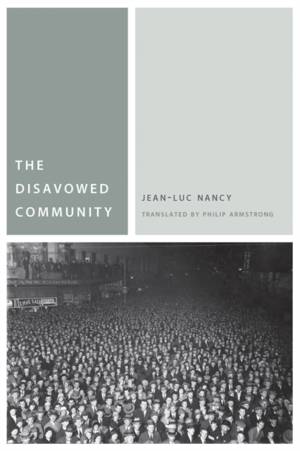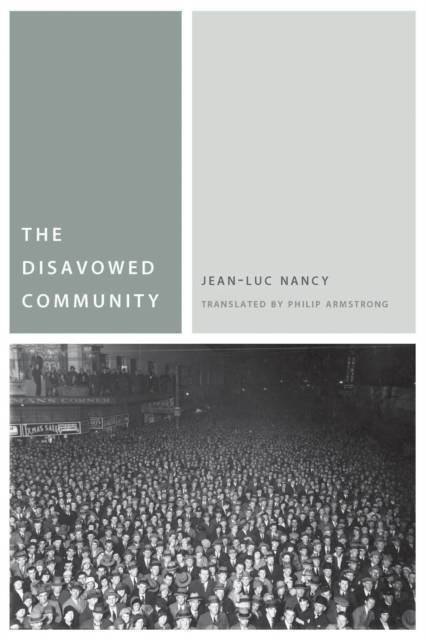
- Afhalen na 1 uur in een winkel met voorraad
- Gratis thuislevering in België vanaf € 30
- Ruim aanbod met 7 miljoen producten
- Afhalen na 1 uur in een winkel met voorraad
- Gratis thuislevering in België vanaf € 30
- Ruim aanbod met 7 miljoen producten
Zoeken
Omschrijving
Over thirty years after Maurice Blanchot writes The Unavowable Community (1983)--a book that offered a critical response to an early essay by Jean-Luc Nancy on "the inoperative community"--Nancy responds in turn with The Disavowed Community. Stemming from Jean-Christophe Bailly's initial proposal to think community in terms of "number" or the "numerous," and unfolding as a close reading of Blanchot's text, Nancy's new book addresses a range of themes and motifs that mark both his proximity to and distance from Blanchot's thinking, from Bataille's "community of lovers" to the relation between community, communitarianism, and being-in-common; to Marguerite Duras, to the Eucharist. A key rethinking of politics and the political, this exchange opens up a new understanding of community played out as a question of avowal.
Specificaties
Betrokkenen
- Auteur(s):
- Vertaler(s):
- Uitgeverij:
Inhoud
- Aantal bladzijden:
- 144
- Taal:
- Engels
- Reeks:
Eigenschappen
- Productcode (EAN):
- 9780823273850
- Verschijningsdatum:
- 1/09/2016
- Uitvoering:
- Paperback
- Formaat:
- Trade paperback (VS)
- Afmetingen:
- 155 mm x 231 mm
- Gewicht:
- 317 g

Alleen bij Standaard Boekhandel
+ 80 punten op je klantenkaart van Standaard Boekhandel
Beoordelingen
We publiceren alleen reviews die voldoen aan de voorwaarden voor reviews. Bekijk onze voorwaarden voor reviews.








